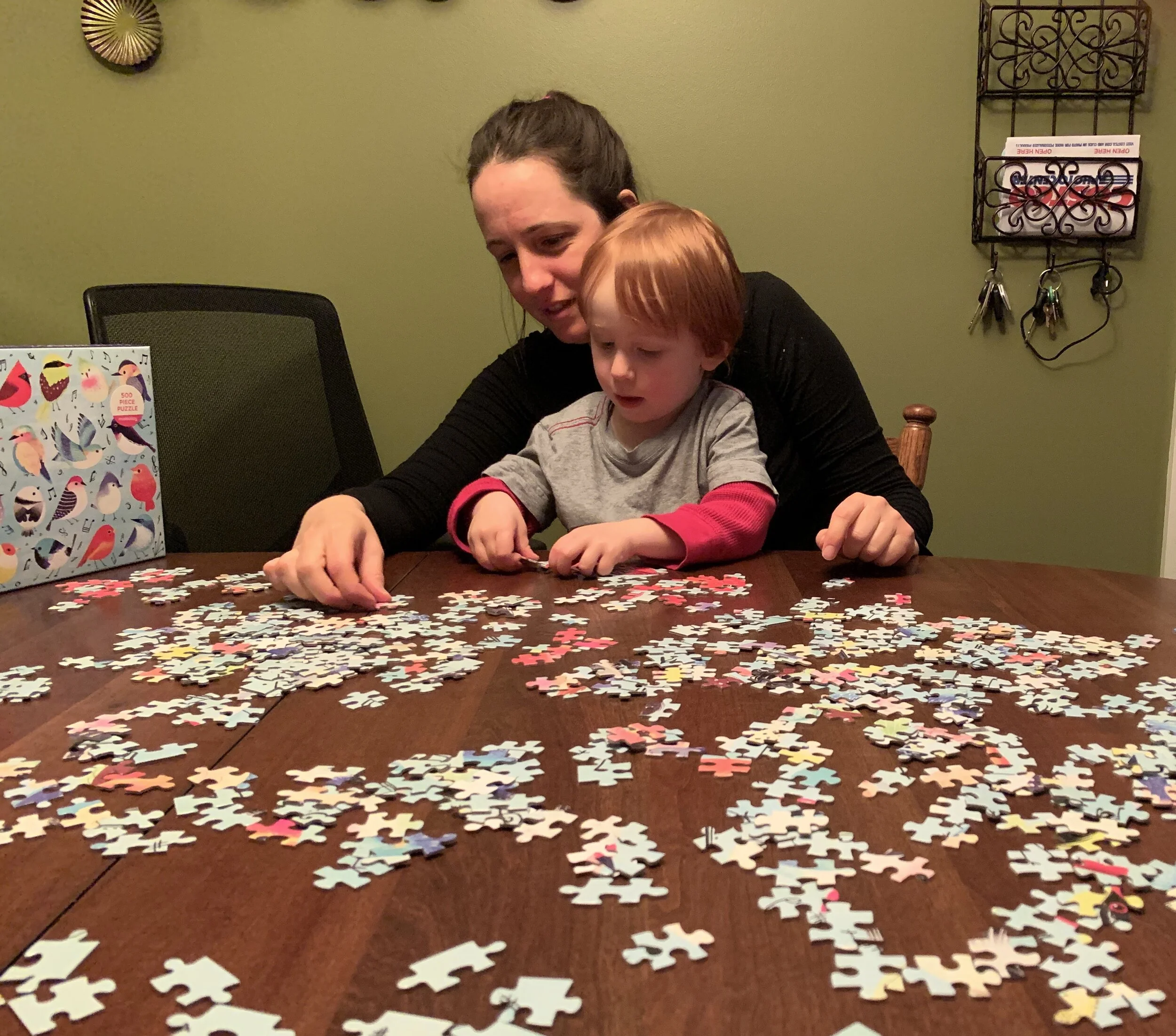My sleep study was one of the worst nights of sleep of my life. But, the doctor sent me on my way with three pieces of advice/information that will stick with me forever.
How Meditation Class Disrupted My Sleep
Active Rest for Better Sleep
Standing Posture Visualization Audio
Bedtime Routine for Better Sleep
How Does Stress Effect Sleep?
Once you sound the stress alarm bell, your body produces stress hormones to help you cope. One hormone, cortisol, is produced fresh with each stressful episode and it stays in your body until it is metabolized out. Excess cortisol disrupts sleep. Which results in daytime fatigue.
You feel tired when you want and need to be awake and you are awake during times you want to be asleep. Frustrating.
Lower Leg Movement Visualization
Movement starts at your feet (when walking, hiking, etc.). The feet have the most bones in the human body. The knees react to the feet when you are weight bearing. When seated in a chair you can strengthen the knee joint without the influence of your hips and feet.
That’s what this experience is all bout.Treat your knees and feet to these movements. Review the many movements of the lower leg.
Tibial internal and external rotation
Knee flexion and extension
Plantar flexion and Dorsi flexion
Inversion and Eversion
You can follow this audio right from your chair.
My Partner is Keeping Me Awake at Night
Your Brain Has a Sleep Program
Your brain has a program to run every night. There are consequences of cutting it short. You need enough of the five different kinds of sleep every night. Just like you need food, water, exercise, relationships, etc. every day.
Pelvis & Hip Movement Visualization
The hips support the spine.
The hip joint can flex, extend, rotate and circumduct, it has a lot of motion!
The sacrum, coccyx and two hip bones make up the pelvis.
21 muscle cross your hip joint to move it.
Move your hips to open them up and tune in with this audio. Enjoy the added mobility and stability.
The Five Stages of Sleep
Spine and Thorax Movement Visualization
The spine and thorax protect vital organs.
The ribs expand and contract to allow for breathing.
The vertebrae rotate, flex and extend to support motion.
You have 24 vertebrae and 12 ribs in your thorax.
Take a moment to appreciate and tune in to this wondrous area of the human body. You’ll feel more mobility, concentration and relaxation after listening to this audio.
Enjoy!
More Sleep Equals More Time
“There isn’t enough time for sleep”. I hear this. It’s a very real modern day barrier to getting enough sleep. It’s the number one barrier for exercise also.
There is so much to do. We are a busy species. Thankfully, research has examined this topic and can let us loose from this misconception. Sleep is worth our time.
10 Favorite Immune Boosters for Rest and Recovery
How do you dodge a cold? “Oh, I just take this mushroom supplement when I feel a tickle in my throat and I don’t get sick.” Wow, that would be amazing! Everybody’s got their go-to illness prevention and remedy strategy. Echinachea, zinc, vitamin C, etc. Whether these are placebo effect or real, most of the time - they can’t hurt.
I realized this week that my favorite immune system related remedies are not just to avoid and get away from being sick, but also about enjoyment, rest and self-care.
14 Habits for Getting Enough Sleep
High quality, consistent sleep doesn’t just happen. It’s true, you will pass out from exhaustion at some point every night. Ideally it takes about 15-20 minutes to fall asleep, with passing out - a sign of over-tiredness. The need to look at a device to fall asleep is a sleep association that can create a vicious cycle of lost sleep. So can coffee.
This is not to say you are doing anything wrong and it’s not to place any blame. This is to say that we have advanced technologically in our culture, but left sleep in the dark - literally.
It’s time to open our eyes to more energy, patience, emotional stability and health by honoring circadian rhythm and our innate need to sleep.
Sleep isn’t so natural. We have to make healthy sleep happen by protecting it with supportive daily practices. Just like with exercise and optimal eating.
Here are 14 habits to work on to get the sleep you need and deserve. I’ll be talking about these in more detail on a FB live on my sleep fitness facebook page soon. Join the group for free access!
Here are the Habits to Implement:
Expose yourself to natural morning and/or daytime light. Get outside for at least 30 minutes daily.
Use a consistent sleep schedule to set the body’s internal clock. Avoid sleeping in and changing bedtime nightly.
Avoid caffeine after 10 a.m.
Nap early (before 5 p.m.) and under 30 minutes.
Exercise early and at least 3 hours before bedtime.
Eat dinner early. Keep food and beverages light.
Eliminate alcohol, nicotine and other chemicals/herbs before bedtime.
Avoid medications in the evening (unless required by a prescription).
Dim all house lights before bedtime.
Establish a soothing pre-sleep routine with reduced stimulation.
Create a sleep-friendly bedroom environment. Make it dark, cool, quiet, comfortable and gadget-free.
Go to sleep when truly tired—don’t override sleep cues.
Don’t watch the clock or lie in bed awake. Do something relaxing and screen/light-free.
Follow through—make sleep a priority and part of your routine.
Take your time implementing these habits. Choose one or two to start with and add another one in after you’ve gotten comfortable with the one(s) you’ve implemented.
Strive toward the goal of reaching a committed rising time and bedtime. Without this main goal, achieving the needed 7-9 hours nightly can be frustrating.
Download my free sleep journal to help you reach your sleep goals.
Heart Centered Conscious Nutrition with Heather Fleming, BS, CNC
Heather shares nutritious freedom and joy with us during this upbeat and encouraging interview.
Increase your energy and diminish heaviness. Heather’s approach to eating is centered around body wisdom and intuition. She enlightens us to a path of letting go of perfection when eating and talks about nourishing the connection between the right and left brain. We discuss letting go of fear and balancing the body and the brain. It’s truly a heart to heart chat about eating!
Have Your Sleep and Your Cake and Eat It Too
5 Tips to Cope With the Fall Time Change
Recommended Sleep Guidelines Are Misleading
What is a Sleep Hangover?
I often hear people say they don’t like sleeping too much because they feel groggy afterward.
What follows is often, “I don’t need a lot of sleep” or “See, too much sleep isn’t good for me”.
Too much sleep can be problematic, but only if it’s chronic over-sleep, like every single night for years.
There’s a misunderstanding of what your body is telling you with an acute episode of “too much sleep”.


















